Delgados - Interview
by Anthony Strutt
published: 18 / 10 / 2002
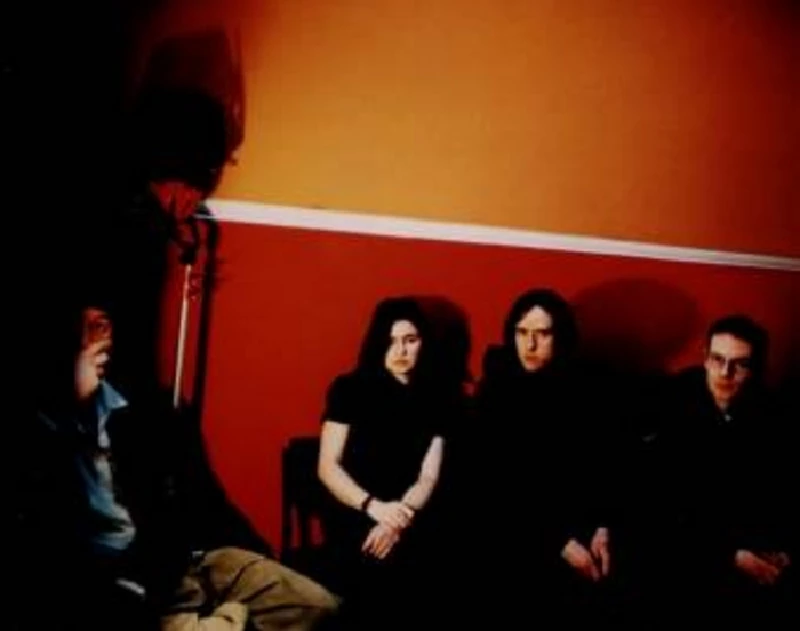
intro
The Delgados fourth album 'Hate' is the band's most critically acclaimed album to date yet. Anthony Strutt talks to frontwoman Emma Pollock about is recording, and the band's decision to switch to Mantra from their own Chemikal Underground label
The Delgados were formed by Glasgow University students Emma Pollock (Guitars/Vocals) ; Alun Woodward (Guitars/Vocals) : Stewart Henderson (Bass) and Phil Savage (Drums) at the tail end of 1994. Shortly afterwards, the four piece established the Chemikal Underground label, which has since grown to become Scotland’s largest and most prolific independent label, and which, as well as the Delgados, has also released records by Bis, Mogwai, Arab Strap, Mogwai, Interpol, Suckle and most recently Malcolm Middleton and Cha Cha Cohen. The Delgados have to date released four albums, ‘Domestiques’ (1996), Peloton (1998), ‘The Great Eastern’ (2000) and ‘Hate’, which came out in October. The band’s “beautifully skewed and dreamy pop sound” was on the first two albums largely guitar-orientated, but the Mercury Award nominated ‘The Great Eastern’ and ‘Hate’ have found the group experimenting increasingly with strings, brass and a piano. The Delgados have also recorded various John Peel radio sessions, and provided in 2001 a live soundtrack at the Barbican Centre in London to “Outsider/Music’, a film about artist Joe Coleman. ‘Hate’ is the first of the Delgados’ records not to come out on Chemikal Underground, and has been released instead on the London label Mantra recordings. I met up with Emma Pollock at at Mantra press day to promote the new record, and spoke to her about ‘Hate’ ; the group’s decision to change labels, and its increasingly eclectic sound. PB : When you first formed Chemikal Underground, did you do so originally because you wanted to release your own records in the style of say Creation or Postcard? EP : It was never just to do the Delgados. Chemikal Underground was from the beginning always a serious label and it always had serious intentions. I think around about that time when we started in around about 1995, and it is probably still going on now, a lot of bands were forming their own little imprints so that they could dangle a carrot in front of the majors. They were putting out their own records on their own labels, and then getting deals off the back of it. The majors were also putting forward their own imprints (ie. Virgin had Hut records who released the Auteurs and the Verve-AS), as a way of cashing in on the whole alternative scene. We did have opportunities and were offered a deal, but we didn't want to get involved with the company in question, and out of that chose instead to form our own label. Part of it was definitely, therefore, to start off on our own, but we always had the serious intention of signing other bands. I was always more influenced by Factory than by Creation. PB : As you are now on Mantra, can you see yourselves releasing anything else on Chemikal Underground in the future by the Delgados possibly as a treat to loyal fans, maybe a Christmas single or perhaps as a one off ? EP : We have never considered it, but it is certainly an idea. The thing about one offs though is you wonder how many people will be interested . Retail generally doesn't stock singles now unless their top 30 or 40 which is a complete nightmare. We generally put out singles on Chemikal Underground to promote a bigger release such as an album. If we were to put another Delgados release out out on Chemikal Underground., I think that would have to be internet based or a mail order or a website sort of thing. I couldn't even imagine how difficult that would be. It's an idea that we haven't considered so far because we are so tied up focusing on the album at the moment, but I'm not entirely sure. I'm thinking about it whether it would undermine the stature of the label. It may come over as a bit patronizing at the end of the day. I wouldn't want people to look at Chemikal Underground and to say “They had the Delgados, but now they just put out little releases.” Chemikal Underground is a label in its own right, and I wouldn't like to see it demoted to that. I'm talking, to be honest, from the top of my head, but that would be my initial reaction. PB : Does it feel strange that you are not on Chemikal Underground anymore? EP : Not as strange as I thought it would be. No, which is odd. The Delgados will always be associated with Chemikal Underground, so that will never change The label is also ours. We are in the office as much as we can. In many ways the difference is quite small. If the record does really well, then Chemikal Underground won't be there to receive the rewards, but if it is expensive to market then Chemikal Underground won't have to deal with the burden. That's what it means at the end of the day. The reason it is on Mantra is because we weren't in a strong control position to deal with it this year. We have already committed to Malcolm Middleton’s debut album, and the second Cha Cha Cohen album. We are going to sign some new things over the next six months as well. It had got to the stage in our relationship between the label and the band where it was not going to work as well. I have no doubts that with the right funding available it would have been okay to put out ‘Hate’ on Chemikal Underground. Our expertise and our knowledge of the press is second to none. It is all down to the fact that we are truly independent, and not funded. There is no one to help us out. Rather than force the issue through for the sake of it and to try and put out the record and to risk losing the label entirely, we didn't think it was a good idea to push it. PB : Do you think your songwriting has improved because you used to be a guitar based band and now you use a lot of strings and brass? EP : Yeah, definitely. I wrote a song on piano this time around. PB : I think your voice suits a piano anyhow. EP : Oh, thank you. Yeah, it's a bigger thing. I supposed it's weird, I suppose it's true. You do get certain voices that suit instruments because of the frequencies. I think we are a lot more open now, a lot more freerer and maybe less aware. We are certainly a lot more daring with the songwriting. PB : Or maybe you’re just more open to different avenues ? EP : I suppose when we are writing songs we are little less scared to push ideas, regardless of whether they sound like rock or not. It's like when I wrote the song on the piano. It wasn't a song in it's own right. It was just a hook which I came up with two years ago. I wouldn't of thought it worth bothering about originally, but now we have got an appreciation of what makes good music. PB : Due to the nature of the new material and the fact that you are generally playing bigger venues, would you prefer as a result to play theatres rather than traditional rock venues ? I believe you have played the Barbican and didn't you play the Royal Festival Hall as well ? EP: It’s funny. The whole idea of playing a theatre sounds great, but it can be really expensive to play these places. PB : Do you have to hire them out? EP: Yeah. They don't have PAs in them and that can be a bit of a nightmare. It is also nice to sometimes play an ordinary gig because it's not always great to have people sitting down. It can be a bit frustrating. When we did the Royal Festival Hall though, everyone was sitting down and it worked out fine. It was so grand. PB : Yeah, it's a lovely venue. EP : It fitted the music and the size. I am not entirely sure it would work at a smaller gig. I think we would still want the opportunity to be there for people to stand. It's not like it is a contemporary classical rendition. We are still a sharp guitar band, and there are songs that strings don't touch, and there are songs that always work live. They will always be raw and have an edge to them. I still want a gig to be quite an uplifting thing, not just in a nice, kind of lovely way, but more as the kind of a gig that takes control of you. If you want to react to that, you may want stand up. Choosing venues is a difficult decision, but I wouldn’t want to turn the band on its head, and turn us into some kind of “Art’ thing PB : Would you consider in the future playing with a string section or an orchestra? EP : Oh God, yeah. that would be great fun. I think it would be absolutely brilliant to hear the songs just as a one off. I wouldn’t want it to be like a representation of the band, but, if there was an opportunity to have our songs represented in a purely orchestral kind of manner, that would be brilliant. I would love to hear them because it would be such a compliment if it worked. PB: Do you still enjoy recording ‘Peel Sessions’? EP: Yeah, we just did another one. It’s covers actually. PB: How did you choose them? EP : All of us just came up with ideas. We didn't have a lot of time, so we just started to rehearse them almost immediately. We only had 2 weeks to get to know the songs. A couple of them we tried and we didn't think they were going to work so we moved on. PB: Is 'Hate' a continuation of what you were exploring on 'The Great Eastern? EP : Yeah. I would say a continuation, a progression. Definitely ! PB: Well, most albums tend to push things a bit further on. If you are going to make the same album it's really not worth doing? EP : Yeah, exactly ! It would have been a bit boring for us to do, and also for us to listen too. It's difficult to pinpoint what the differences are, but it was written with a different attitude. We knew what we were doing a bit more with the strings. This time around we wrote most of the parts for them ourselves. There are a couple of tracks, ‘The Drowning Years’ and ‘Hate’, which Malcolm Lindsey arranged the strings on. When we first heard the strings for 'The Drowning Years' we all kind of thought “Wait a minute, it doesn't sound like anything that could fit in with the song”. He came at it from such an angle. We weren't sure we had given him the right song, but it just turned out so fantastic. Sometimes that just happens, Sometimes, after giving it one or two listens, it is doesn’t just sound good. It makes the song. It changes so much. That's the difficult thing with writing,. When you write a song, you do create a certain feel, but when someone else writes another part, it is sometimes difficult to accept it as you have written the song. Alan and I just had to step back and let Bob Stewart, the producer, get on with it. When you hear your songs getting tarted up, you can sometimes get a bit possessive. You get a bit upset and you say “You canna do that, ; that sounds phish !!!” But in fact, they are usually right. Yeah, it's a progression though and I think we threw caution to the wind. PB: Was it harder to record then the others? EP: No, it was easier because we were more prepared. PB: And you know what you are doing now. EP : And we were also getting on better. Paul and I had a baby this year in January, so I had been pregnant through the whole entire recording, I did find I couldn't sing very well ,so we had to go back in to the studio and finished recording in February and March. I was, therefore, recovering from a stressful time and I was really pleased to see everyone again, and enjoying getting back to normality. There was a lot of good feeling between us all . As four people we do generally get on very well,. What I mean is we do have really strong relationships with each other. but they haven't always been easy because when you have four strong willed people all trying to make something that's good you are going to come across some disagreement . For a while when we made 'Peloton' and 'The Great Eastern' we did talk about splitting up. There were major arguments and we did think there would be no reconciliation, but it didn't happen this time. I think everyone has grown up a bit. We are all indispensable to the band, unlike a lot of groups The four of us are essential, so this time it was a pleasure. PB: Any more plans to do any more soundtrack shows? P: We would love to. PB: Wasn't it for some weird film? EP: Yeah, it was. It was Joe Coleman. I don't know if you know him? PB: No. EP: He is an American artist, who is extremely well thought of by a lot of celebrities. He has a lot of famous fans like Johnny Depp and Leonardo de Caprio and people like that. He paints kind of visual biographies of people like Ed Gein (a 50’s serial killer, who the films ‘Psycho’ and ‘The Texas Chainsaw Massacre’ were loosely based on-AS), and Mary Bell (a 60’s Newcastle girl murderess-AS). There was also some girl like Marilyn Monroe, but she was into Satanism in the 50's. I can't remember. He seems to paint pictures of fairly troubled characters, and very colourful people. He sort of paints the person in the middle and around about lots of little pictures about their life. The video was something like six or seven of his paintings, all focused on the camera and moving around, so in a way you were looking at the story of various people and their lives,and that is what we have to put music too. It was one of the most challenging things we have done . PB: A lot of bands are doing live soundtracks to films. Bis are doing ‘Quadrophenia’, but some bands do silent films. I think you and a piano doing that would sound really good. EP: Thank you very much. I will bear that in mind. Thank you. PB: Last question. Why did you only sign Interpol to do a single ? What attracted you to them? EP: Oh, I think they are magic. I was so disappointed when we didn't sign them. I wanted to. I wanted to sign them up for an album ,but we weren't in a position to be able to offer them a deal and, to be honest, we don't all feel the same about them which would have left me in their bad books.I think that, yeah, they do borrow from the past. You can hear a lot of early U2, but Paul has a great voice and I just think what they play is fantastic. I have known Interpol since '96 since I heard an early demo, and will I tell you something. They have worked their arses off . I don’t know what's going to happen. They are doing well in America, getting a bit of press here, but I think that whole New York scene will come to an and soon. PB: Thanks for your time. EP : You’re welcome.
Picture Gallery:-
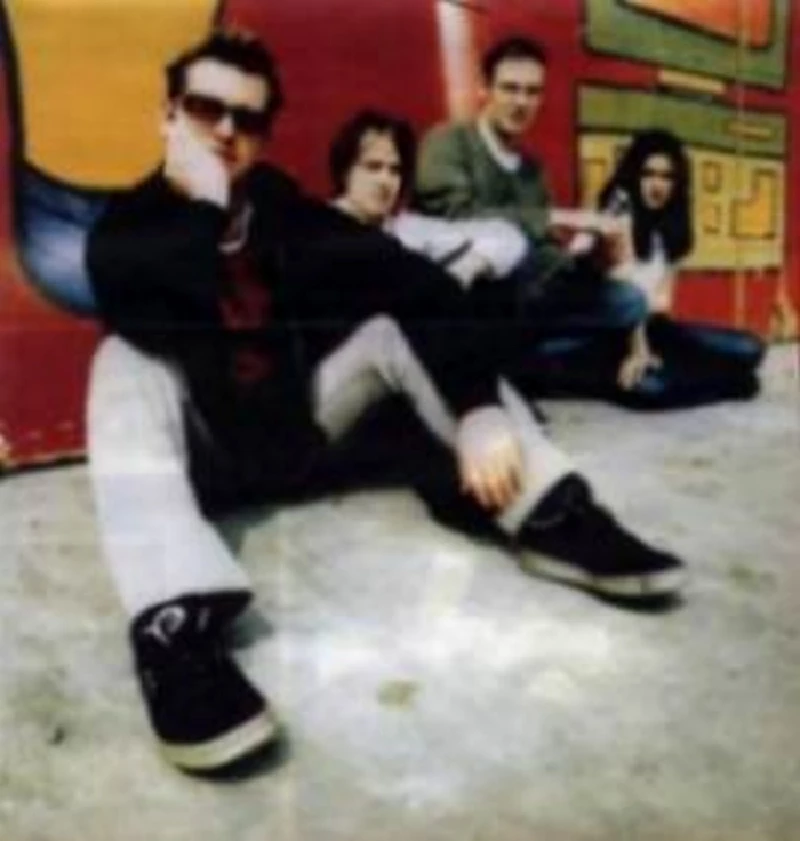
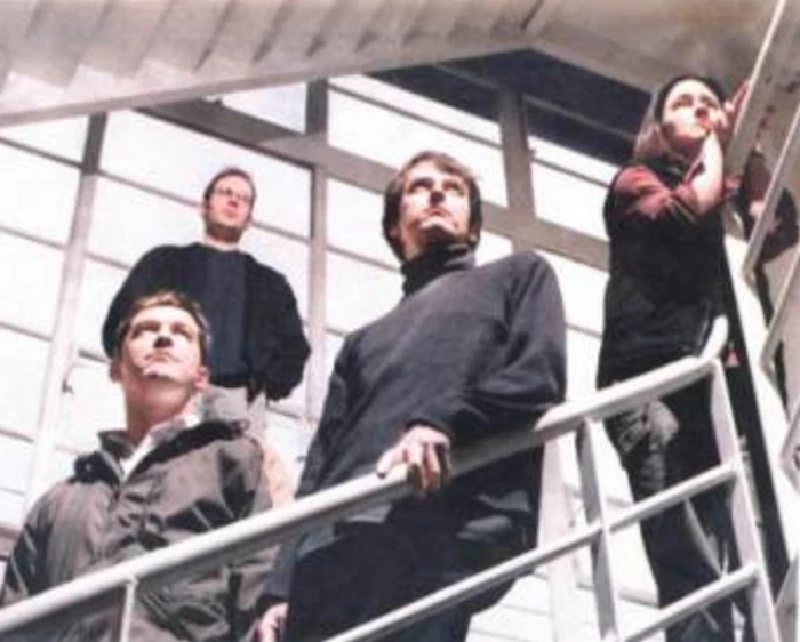
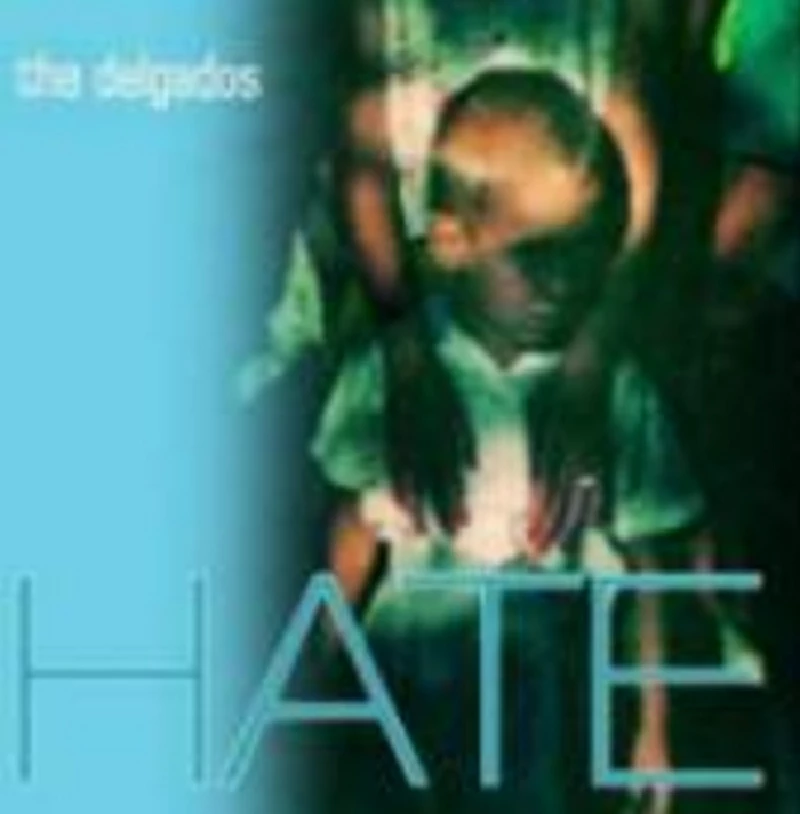
live reviews |
|
London Shepherd's Bush Empire, 31/1/2003 |
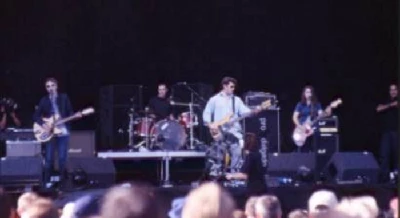
|
| The Delgados' recent tour found them with nine musicians on stage. Olga Sladeckova at a show at London's Shepherd's Bush Empire, however, concludes that less is often better than more |
| London ICA, 12/11/2002 |
reviews |
|
Hate (2003) |
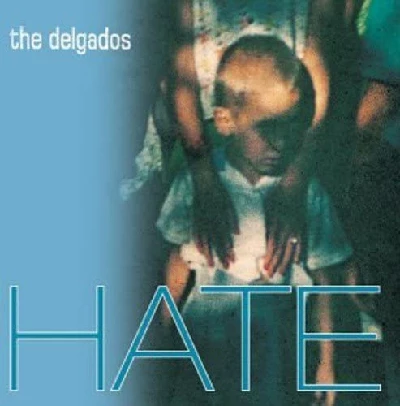
|
| Worthy, if slightly too predictable new single from the Delgados |
| Hate (2002) |
| No Danger (2001) |
most viewed articles
current edition
Carl Ewens - David Bowie 1964 to 1982 On Track: Every Album, Every SongBathers - Photoscapes 1
Armory Show - Interview with Richard Jobson
Colin Blunstone - Thalia Hall, Chicago, 16/7/2025
Visor Fest - Valencia, Spain, 26/9/2025...27/9/2025
John McKay - Interview
Editorial - July 2025
Sir Tim Rice - Interview
Bathers - Photoscapes 2
Billie Eilish - O2 Arena, London, 10/7/2025
previous editions
Heavenly - P.U.N.K. Girl EPOasis - Oasis, Earl's Court, London, 1995
Beautiful South - Ten Songs That Made Me Love...
Trudie Myerscough-Harris - Interview
Pixies - Ten Songs That Made Me Love...
Simon Heavisides - Destiny Stopped Screaming: The Life and Times of Adrian Borland
Manic Street Preachers - (Gig of a Lifetime) Millennium Stadium, Cardiff, December 1999
Doris Brendel - Interview
Prolapse - Interview
Boomtown Rats - Ten Songs That Made Me Love....
most viewed reviews
current edition
Amy Macdonald - Is This What You've Been Waiting For?Sick Man of Europe - The Sick Man of Europe
Phew, Erika Kobayashi,, Dieter Moebius - Radium Girls
Alice Cooper - The Revenge of Alice Cooper
Davey Woodward - Mumbo in the Jumbo
Lucy Spraggan - Other Sides of the Moon
Blueboy - 2
Cynthia Erivo - I Forgive You
Lapsley - I'm a Hurricane, I'm a Woman In Love
Philip Jeays - Victoria
Pennyblackmusic Regular Contributors
Adrian Janes
Amanda J. Window
Andrew Twambley
Anthony Dhanendran
Benjamin Howarth
Cila Warncke
Daniel Cressey
Darren Aston
Dastardly
Dave Goodwin
Denzil Watson
Dominic B. Simpson
Eoghan Lyng
Fiona Hutchings
Harry Sherriff
Helen Tipping
Jamie Rowland
John Clarkson
Julie Cruickshank
Kimberly Bright
Lisa Torem
Maarten Schiethart